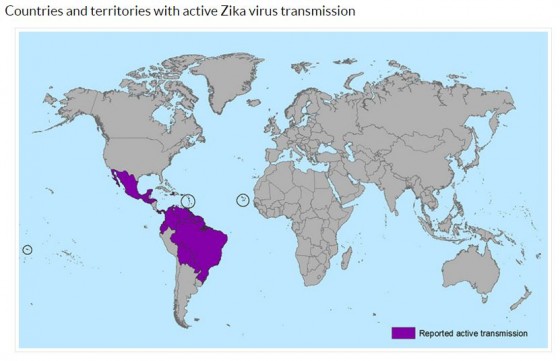
It is understandable if you bade an enthusiastic farewell to 2015. International markets whipped up and down, ISIS’ terrorism campaign extended well beyond the Levant, South China Sea tensions escalated, and, of course, a historic refugee crisis consumed Europe (and the attention of much of the West). Oh, and 2015 was by far the warmest year on record.
The political risk consultancy Eurasia Group, headed by noted scholar and author Ian Bremmer, has weighed in on the risk outlook for 2016 and it isn’t pretty. In a nutshell, all of the problems of the past couple of years “will get worse.” The strategically critical countries of Russia, Turkey, and Saudi Arabia are all on a path of decreasing stability or increased international belligerence (or both), and this development is exacerbated by a U.S.- Western Europe alliance that is shrinking away from messy international situations.
As if this wasn’t enough for risk professionals, the Zika virus has added a potentially serious new dimension to operations risk in 2016 (and beyond). Heretofore isolated in sub-Saharan Africa with limited impact on human populations, the mosquito-borne Zika has broken out in a big way after showing up in South America last year. The infection causes symptoms including mild fever, conjunctivitis and headache. It has now been found in 21 countries in the Caribbean, North and South America and has been linked to thousands of babies being born with underdeveloped brains. More information on Zika is available from the World Health Organization.
No treatment or vaccine is available.
For a long time a Zika infection wasn’t considered that serious—unlike Ebola, it is rarely fatal and symptoms usually clear up in a week or so. But as you’ve probably heard, the real scare is the effect it can have on unborn fetuses. There is mounting evidence that babies whose mothers are infected have a much greater risk of having severely underdeveloped brains (microcephaly). Colombia, Ecuador, El Salvador and Jamaica have advised women to delay pregnancy until the virus is more understood.
Combined with the WHO’s Jan. 25 declaration that Zika will almost certainly spread to all of the Americas, we have a significant public health situation on our hands.
The U.S. government has classified Zika as a “level 2” threat, which means it is recommended that travelers practice enhanced precautions when going to Zika-infected areas. If the link between Zika and microcephaly is confirmed, the threat level could escalate.
Zika poses an interesting quandary for organizations with large numbers of internationally traveling staff. What cautions should be taken when sending employees to Central and South America and other areas threatened by Zika? Should travel there be avoided, or should organizations simply put more effort into educating people? And as there is a potentially elevated risk for pregnant or potentially pregnant female staff, how should that disparity be handled?
An Ebola outbreak is simpler to deal with, owing to the grave danger that disease poses—it’s clear that an organization should prevent travel to places where Ebola is a threat. Zika, however, has the tricky quality of probably being not that serious to most people, but incredibly serious for some. RIMS will be monitoring the situation closely; stay tuned for more explorations of the topic in the coming weeks and months.

Be sure to sign up for the special RIMS webinar on the zika virus threat. In partnership with International SOS: https://www.rims.org/education/webinars/
A great companion read–the environmental factors contributing to the spread of zika-carrying mosquitos: https://www.washingtonpost.com/news/energy-environment/wp/2016/02/03/the-hidden-environmental-factors-behind-the-spread-of-zika-and-other-deadly-diseases